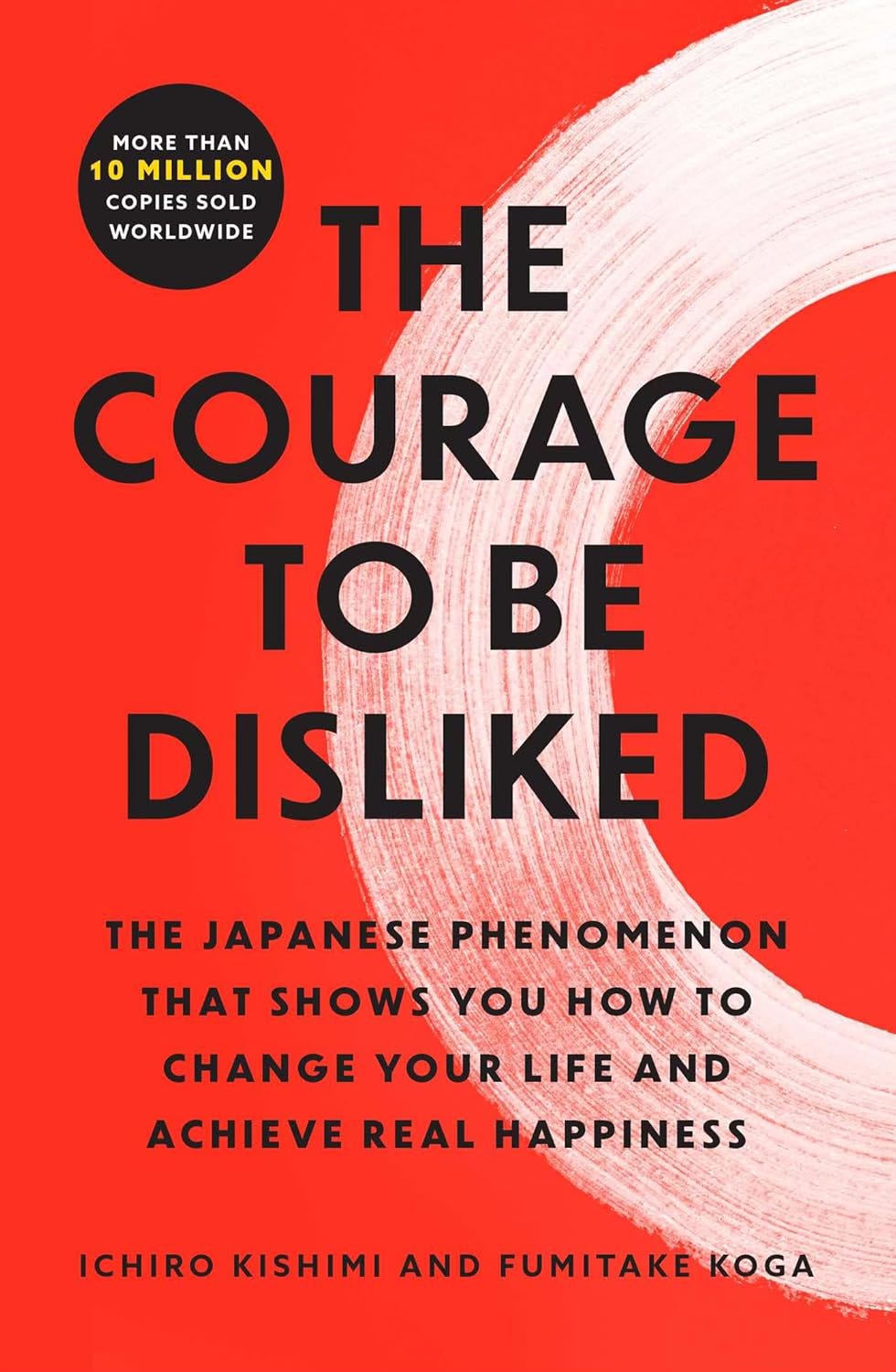Last night I finished The Courage to be Disliked, a Socratic dialogue between a philosopher and a student that presents the ideas of Alfred Adler. The book’s co-authors, Ichiro Kishimi and Fumitake Koga, aren’t literally those characters, but Kishimi, a philosopher with a background in Greek thought, clearly preferred this format for conveying Adler’s work. I am now going to start over and read it closely and write about it on here.
I wrote a pretty long essay originally, and it just meandered a lot. I had to write it to get my thoughts down, but as with so much of my response to this book, I’m really all over the place. Because of teaching that history of economic thought class, which kind of splintered my understanding of economics as a science by showing me its endogenous development and various disagreements, I think I can’t help but be trying to simultaneously do two things in reading this book. I first want to answer to myself how this differs from neoclassical theories about people and human nature. That’s partly because it’s my field, and partly because of Gary Becker’s influence on my thinking. But the second thing is because I can absolutely sense that I am drawn to the material in this book because it speaks to me on such a deep level, and I want to figure out all the things getting in the way.
Coin flip to determine paywall
This post will wrap up my broader thoughts on economics versus Adlerian psychology. These are, of course, just my own idiosyncratic reflections—deeply rooted in my understanding of Becker and mainstream neoclassical economics. I realize that for some, my perspective may feel a bit off the grid. Still, I want to explore some of the ideas that occupy my mind constantly and how this book served as a kind of mirror to them. I’ll discuss production versus exchange as a framework for thinking about economics as a science, the distinction between positive and normative economics, and the question of whether economics, even as a powerful tool for understanding how societies are organized, is ultimately ill-suited for helping us understand what makes us happy. That tension—between economics as an explanatory framework for society and its limits as a guide to personal fulfillment—may, in fact, be the recurring theme of this entire series. Can economics be the best tool for explaining social organization while also being almost orthogonal to the pursuit of happiness?
But first, the coin flip simulation. I asked Cosmos to flip a coin from a Bernoulli distribution 11 times. Heads I paywall the post, tails it’s free to all. It came up heads 7 times but tails only 4 times, so the post is paywalled below. Please consider becoming a paying subscriber so you can get more great simulated coin flips using ChatGPT and other things!
So Who Was Alfred Adler?
Alfred Adler was born on February 7, 1870, in Vienna, Austria, and died on May 28, 1937, in Aberdeen, Scotland while on a lecture tour. He was trained as a physician and initially worked as an ophthalmologist before shifting to general medicine and later specializing in psychiatry and psychology. He practiced primarily in Vienna, where he was deeply involved in Freud’s psychoanalytic circle before their split. After breaking from Freud, he developed Individual Psychology, his own school of thought, and became a well-known lecturer and therapist.
Keep reading with a 7-day free trial
Subscribe to Scott's Mixtape Substack to keep reading this post and get 7 days of free access to the full post archives.




